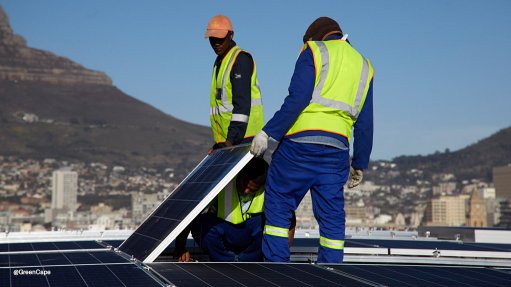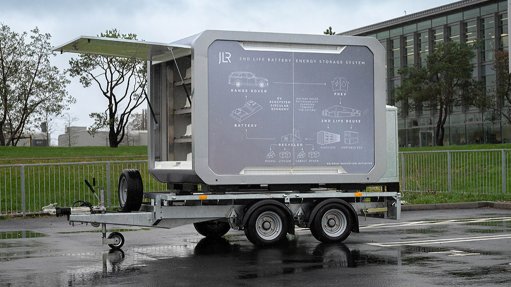Operation Vulindlela
When, on March 15, I saw a piece on the National Treasury’s website that was titled ‘Operation Vulindlela’ and marked ‘Latest News’, my gut feeling was that it was about a covert operation. In both Xhosa and Zulu, vulindlela means ‘make way’, and in the context of a Brenda Fassie song, it means: “Make way, you gossiping neighbours, because my child is getting married today.”
The National Treasury’s ‘Fact Sheet on Operation Vulindlela’ poses and answers questions that provide insight into the operation.
The operation is driven by the Presidency, with support from the National Treasury. It aims to accelerate the implementation of prioritised economic structural reforms. Its implementers are departments and State-owned entities, supported by the Vulindlela Unit. The reform- implementing Ministers remain accountable for the implementation of the reforms that they are responsible for.
What is the role of the Vulindlela Unit? It monitors progress against reform implementation plans provided by the reform implementers. Where implementation is complex and requires a range of actions by different government departments and entities, or where cross-cutting implementation plans are not yet in place, the unit will work with departments and entities to facilitate and coordinate the development of cross-cutting reform implementation plans. The unit escalates challenges and provides support to fast-track implementation.
Who is responsible for monitoring the progress made by reform implementers? Progress reports will be submitted to the President, Ministers and directors-general, as well as the Economic Cluster and Cabinet Committee, where analysis and recommendations will be provided, drawing on information from the reform implementers and other sources. This enables critical assessment and identification of possible delays and provides support measures to address them.
Is Operation Vulindlela not another bureaucratic plan? No – it will assist government in ensuring the expeditious implementation of key reforms in the Economic Reconstruction and Recovery Plan (ERRP). It will focus on a limited number of prioritised structural reforms that have been identified in various government policy documents, including the National Development Plan, the National Treasury’s Towards a Growth Strategy document and the ERRP.
How many reforms have been prioritised by Operation Vulindlela? Prioritised reforms are mostly in the network industries of electricity, digital communications, water and freight transport, because of their potential high impact on economic growth. Work permit and visa reforms have also been prioritised to enable scarce skills into the country and to enable increased tourism.
Economist YiLi Chien contends that the three main factors that drive long-run economic growth are the accumulation of capital stock; increases in labour inputs, such as workers or hours worked; and technological advancement. However, the www.tutor2u.net website offers six main factors, and these are growth in physical capital stock, leading to a rise in capital per employee (also known as capital deepening); growth in the size of the active labour force available for production; growth in the quality of labour (human capital); technological progress and innovation driving productivity improvements (that is, higher gross domestic product for each hour worked); institutions, including those responbsible for maintaining the rule of law, stable democracy and macroeconomic stability; and rising demand for goods and services, led by either domestic demand or demand associated with external trade.
As to how electricity, digital communications, water and freight transport will result in increased economic growth – well, I do not know about that.
As for work permits, why would a country with 26 public universities not produce the scarce skills South Africa sorely requires? Is this indicative of a brain drain? Or could it be attributed to our broken and unequal education, as articulated by Amnesty International in an article published on February 11, 2020? Should education reform not be the top priority?
Comments
Announcements
What's On
Subscribe to improve your user experience...
Option 1 (equivalent of R125 a month):
Receive a weekly copy of Creamer Media's Engineering News & Mining Weekly magazine
(print copy for those in South Africa and e-magazine for those outside of South Africa)
Receive daily email newsletters
Access to full search results
Access archive of magazine back copies
Access to Projects in Progress
Access to ONE Research Report of your choice in PDF format
Option 2 (equivalent of R375 a month):
All benefits from Option 1
PLUS
Access to Creamer Media's Research Channel Africa for ALL Research Reports, in PDF format, on various industrial and mining sectors
including Electricity; Water; Energy Transition; Hydrogen; Roads, Rail and Ports; Coal; Gold; Platinum; Battery Metals; etc.
Already a subscriber?
Forgotten your password?
Receive weekly copy of Creamer Media's Engineering News & Mining Weekly magazine (print copy for those in South Africa and e-magazine for those outside of South Africa)
➕
Recieve daily email newsletters
➕
Access to full search results
➕
Access archive of magazine back copies
➕
Access to Projects in Progress
➕
Access to ONE Research Report of your choice in PDF format
RESEARCH CHANNEL AFRICA
R4500 (equivalent of R375 a month)
SUBSCRIBEAll benefits from Option 1
➕
Access to Creamer Media's Research Channel Africa for ALL Research Reports on various industrial and mining sectors, in PDF format, including on:
Electricity
➕
Water
➕
Energy Transition
➕
Hydrogen
➕
Roads, Rail and Ports
➕
Coal
➕
Gold
➕
Platinum
➕
Battery Metals
➕
etc.
Receive all benefits from Option 1 or Option 2 delivered to numerous people at your company
➕
Multiple User names and Passwords for simultaneous log-ins
➕
Intranet integration access to all in your organisation


















